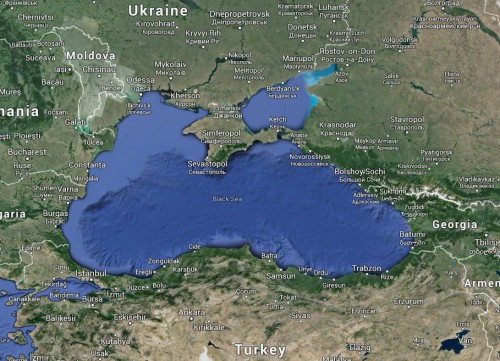9th May 2014 London, UK
We cannot ignore and stand-by illegal annexation of Crimea
In less than three weeks’ time, the people of Ukraine go to the polls in Presidential elections that will determine the future direction of their country. According to reputable polling organisations, over 80 percent of Ukrainians said they will vote on 25 May.
Preparations for elections are going ahead despite attempts to destabilise, disrupt and intimidate. They are going ahead despite attempts to undermine the sovereignty and territorial integrity of Ukraine. Against such a background, a successful vote becomes all the more important.
The UK is offering whatever support we can to help Ukraine move ahead to a more prosperous, accountable and democratic future. But the choice of who should lead Ukraine to that future is theirs to make, and they must be free to make it without fear of instability and intimidation.
Support for a stable, democratic Ukraine is clear: it comes from the EU, the United States and our NATO allies like Turkey. The international community does not underestimate the challenges Ukraine faces or the help it needs.
In April, the IMF agreed a loan that will help Ukraine to tackle its immediate financial needs and launch much-needed reforms. The UK has set the police experts from Scotland Yard on tracking the vast funds looted by former President Yanukovych and his cronies. We want to see these assets returned to their rightful owners, the people of Ukraine. This will take time and hard work but last week in London we gave further momentum to this process with the Ukraine Forum on Asset Recovery.
The next three weeks will be challenging. Violent confrontations continue in Sloviansk, Odessa and other parts of the country. Dozens of people have been abducted and detained illegally, and political activists have disappeared. Journalists have been held hostage or intimated.
It is essential that a free independent media can go about their lawful business without fear of intimidation (as they do in every decent democracy). And it is essential that the public in Ukraine and around the world have access to open, honest information about the situation so they can make up their own minds.
I commend the Ukrainian authorities for the restraint they have shown in the face of severe provocation. I recognise the undeniable challenges of responding resolutely to armed and violent lawlessness whilst avoiding risk to innocent civilians.
Following last month’s agreement in Geneva, the Government of Ukraine has taken significant steps to bring about stability and reconciliation. In keeping with the shared values of the OSCE and Council of Europe, they have made firm commitments to protect the rights of the Tatars and others, offered an amnesty for those involved in actions in eastern Ukraine, special status for the Russian language and launched a debate on constitutional reform and decentralisation. Inclusive dialogue across all communities is an essential element of any such crisis, as the UK learned from our experience in achieving peace in Northern Ireland.
The world is looking to Russia to match Ukraine’s steps to live up to its Geneva commitments.
Russia must pull back its troops. It must ensure that its proxies in eastern Ukraine release hostages, lay down their arms, cease provocations, leave the buildings they have occupied, and allow the legitimate, democratic processes to take their course. And it must step back from its illegal annexation of Crimea.
Russia should know that Ukrainians will not be fooled by the disinformation spread from Moscow’s propaganda machine. The vast majority of the people of Ukraine want to stay in an independent Ukraine.
The international community does not want to see Moscow isolated again after over twenty years of rebuilding relationships that can make a real difference to some of the world’s most difficult problems. But we cannot stand by and ignore the attempts to dismember the sovereign territory of Ukraine with the illegal annexation of Crimea.
Nor can we stand by and watch the fomenting of instability and discord in eastern Ukraine. So we have made consistently clear to the Russian Federation that its interference and intervention in Ukraine will have unwelcome consequences. Moscow need only reflect upon the massive flight of capital from its territory, the dramatic fall of its stock market, rising inflation and the downgrading of its credit rating. And it should be in do doubt about the willingness of the international community to do more.
Much of the responsibility for de-escalating the crisis lies with Moscow, but the responsibility for choosing Ukraine’s future lies solely with Ukrainians.
In the long-run, it will be the people of Ukraine who will triumph: the sailors of Odessa, the miners of the Donbass and the residents of Kyiv and Lvov.
This should not be by force of arms. It will be by the gradual improvement in their living standards that will come from being a modern, democratic nation, one which embraces European values, embraces transparency and condemns corruption.
And Ukraine should not have to choose with whom it does business. Nobody should insist on either East or West. A prosperous and stable nation of 46 million people trading across all its borders would be in the interests of the UK, Turkey and everyone in the region.
